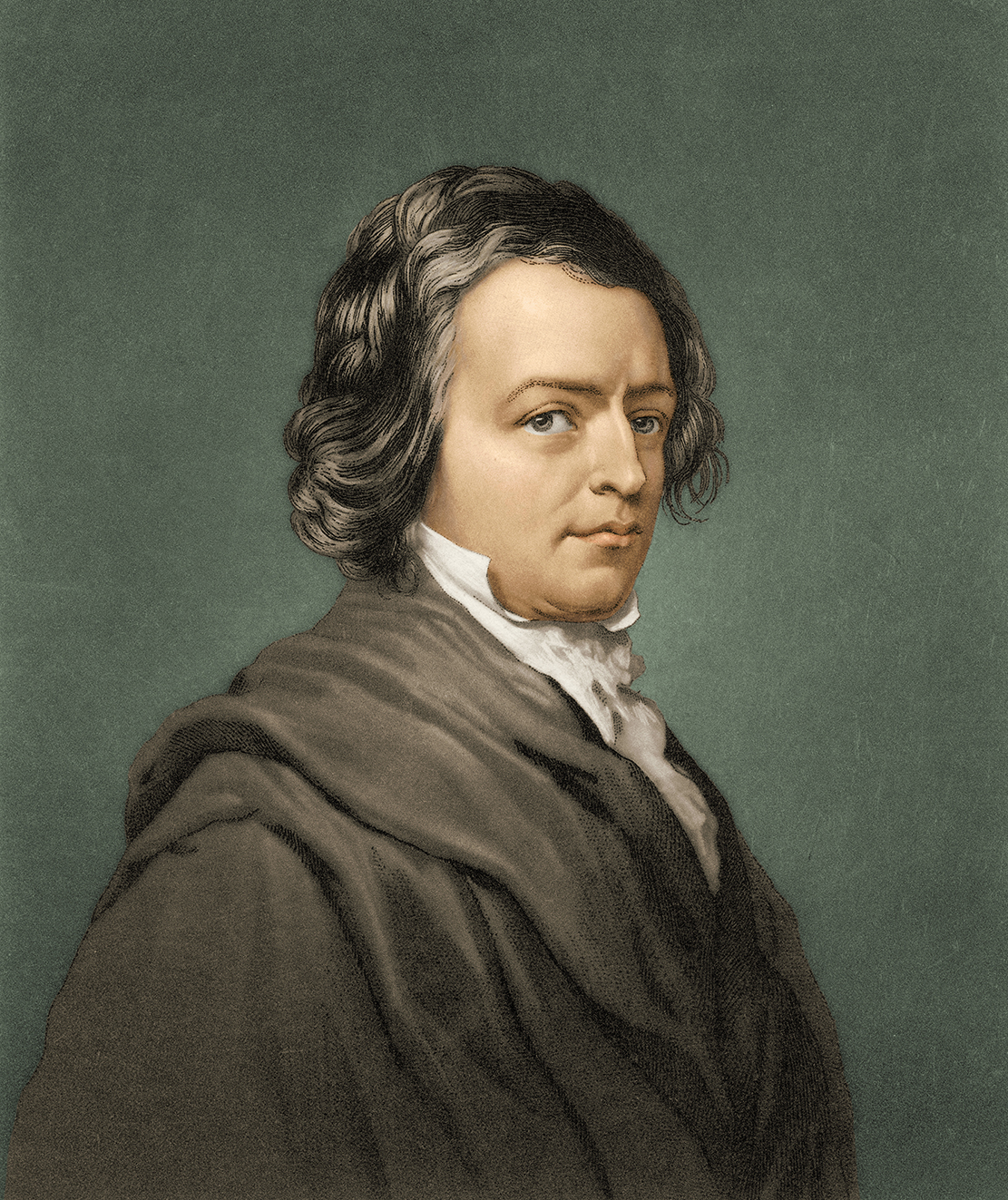By New Statesman
Copyright newstatesman

In 1969, Philip Larkin reviewed a new edition of Alfred, Lord Tennyson’s poems. The New Statesman’s editor at the time, Paul Johnson, said it was one of the best reviews he had ever printed.
To open the complete works of Tennyson is to enter the Victorian age itself. There are the emerald-green landscapes, the dewy roses, the pearly-teethed children; the melancholy maidens, the heavy gardens; peasants, at once comic and pathetic, bob and curtsy. Then there is the tea-shop orientalism, the cardboard classicism, the sawdust Arthurianism. There are railways and geology. The silliness and sentimentality are excruciating. We see the flash of moral indignation, and hear the rumble of received opinion: the smoke of double-think drifts obscuring across the scene. Then suddenly we are brought up sharp by a voice speaking of doubt; there is a vision of fen country on a winter evening; something robust and chuckling digs us in the ribs; finally we hear the assertive trumpets of imperial patriotism and historic endurance. We are confounded by the range, the colour, the self-confidence of it all.
This long-awaited one-volume annotated edition of the poems permits us to repeat the experience in extenso. It is, of course, a landmark in Tennyson studies, and is, equally certainly, fortunate in its editor (Professor Ricks’s seminars on his author are well known). Its design is majestic: the poems are set in chronological order of composition, as far as this is ascertainable, together with substantial headnotes regarding origin and first publication, and a fringe of footnotes giving such textual variants and parallels as seem significant. In parts these are almost more interesting than the text. It is not, as Professor Ricks emphasises, a complete edition: although it includes many poems not included in Tennyson’s own final edition: the songs from the plays are here, but the plays are not (with the exception of The Devil and the Lady), nor are the unpublished poems and variants from the manuscripts in the care of Trinity College, Cambridge. Apparently the College allows consultation of the collection but not transcription from it, against the inclinations of the present Lord Tennyson and also of Sir Charles Tennyson (but not, presumably, those of Tennyson himself). Such an achievement naturally requires a volume of considerable dimensions: its 1850 pages make up a book approximately the size and weight of a brick. It is, I suppose, just about usable as a reading copy; some of the type is rather small, and each page betrays the printing on its other side too distinctly for comfort. So far I have found only one error: the last line of text on page 1108 has strayed unaccountably to the foot of page 1109.
The one thing it does not contain is any kind of attempt to reassess Tennyson critically, and one wonders how the world of English studies regards the fact that the general reader’s image of Tennyson is pretty much as Harold Nicolson left it in 1923. To be sure, there has been plenty of work at the symposium level, and in one case at least (that of Miss Valerie Pitt) a determined effort to make us think of Tennyson differently, but the fact is that no one has repeated NIcolson’s persuasive readability, and this is what – deplorably, no doubt – counts. It’s odd to remember that Nicolson’s book was an attempt to rehabilitate Tennyson, to raise him from the fallen pantheon of Victorian Nobodaddies and show him to be a normal suffering human being, with the same pretensions and absurdities as ourselves. Odd because, as we can now see, it was in essence a Bloomsbury hatchet job: Nicolson, like his master Strachey, was half in love with his subject but still couldn’t forbear to mention the upset over the can of shaving water, or the poet’s opinion of his own verses (“How beautiful that is!”). It was designed to prevent us from ever looking at Tennyson with the eyes of 1859 the year of the Oxford Doctorate:
“Among his colleagues in the honour were sir De Lacy Evans and Sir John Burgoyne, fresh from the stirring exploits of the Crimea; but even patriotism, at the fever heat of war, could not command a more fervent enthusiasm for the old and gallant warriors than was evoked by the presence of Mr Tennyson.”
(The writer is Mr Gladstone.) Instead, Tennyson was presented as a wild, irresolute, rather silly young man of stormy ancestry who, after a youth of amatory and financial troubles, sailed into the double haven of the most Victorian of marriages and the most Victorian of laureateships, fossilising, to use Auden’s word, into a picturesque and still rather silly old man in a hat and cloak who was, underneath, the same frightened and love-needing personality that had fled to the established virtues for protection against hostile circumstance. It is now agreed that what he did best was melancholy (“there was little about melancholia that he didn’t know; there was little else that he did” – Auden, again).
None the less, the picture is a sympathetic one, and it is pretty certain that the general reader would sooner be wrecked on a desert island with a complete Tennyson than with a complete Wordsworth. Here again, although the contention is not a new one (Walter Bagehot spent some time claiming that Tennyson was better than Wordsworth because he had “a power of making fun”, and had given in his works a general picture of human life), one wonders what the world of English studies would say. There has been a good deal of comparison lately of the universities with medieval monasteries (useless, parasitic, distrusted by the workers, soon to be dissolved, etc.), and another parallel might be that just as we paid the monks to offer prayers we ourselves could not be bothered to formulate, so today we pay English schools to praise authors (Spenser, Milon, Pound, etc.) whom personally we find unreadable. Hence it is likely that they rank Wordsworth higher than Tennyson: they may even find him more sympathetic. But they are not losing interest in Tennyson either.
Even the general reader, however, is bound to find a good deal of Tennyson unacceptable. His silliness, which was immediately seized on by his contemporaries, is such as one looks for in vain in both better and worse poets. It is not only the kiss-in-the-bower, tit-on-the-tree kind of silliness, but the failure to see larger absurdities, as when he follows “Who would be / A merman bold… I would be a merman bold” with another poem starting “Who would be / A mermaid fair… I would be” etc.; or his curious inability to know when enough is enough, as with the repeated eponym in The Ballad of Oriana:
“They should have stabb’d me where I lay,Oriana!How could I rise up and come away,Oriana?How could I look upon the day?They should have stabb’d me where I lay,Oriana –They should have trod me into clay,Oriana.”
It was Mr Robert Graves, I think, who suggested the substitution of the words “bottom upwards” for the refrain. This is disgraceful, but it is the kind of mockery Tennyson invited.
This failing is perhaps related to the business of “technical proficiency”. Tennyson’s most enduring claim to renown is, as Eliot put it, in having “the finest ear of any English poet since Milton”; he goes on to say that Tennyson thought he knew the quantity of the sound of every English word except scissors. This concept of technique as something you can be good at without necessarily being good at poetry is quite foreign to a modern reader, who sees form and content as indissoluble, and he is not likely to be convinced he is wrong when he reads that Tennyson reckoned his best line was “The mellow ouzel fluted in the elm”. But was Tennyson’s ear invariably good? He was over-fond of those walloping George R Sims rhythms, even when they were not especially appropriate, and without them his lines seem to hover awkwardly between speech and verse:
“O me, why have they not buried me deep enough?Is it kind to have made me a quiet grave so rough,Me, that was never a quiet sleeper? Maybe still I am but half-dead;Then I cannot be wholly dumb;I will cry to the steps above my headAnd somebody, surely, some kind heart will comeTo bury me, bury meEver so little deeper.”
Context apart, I find it difficult to read this as anything but a lachrymose bleat, quite without inner organisation. Another area, too, in which Tennyson has lost heavily is his classicism: one is reminded of Isherwood’s identification of Tithonus in an American university in A Single Man (“Well, then, I advise you all to spend part of your week-end reading Graves’s Greek Myths”). Classical references are a liability nowadays: the same with Arthurian legends.
On the other hand (and I am picking out simply the points on which the general reader of the Sixties might disagree with the accepted, or Nicolsonian, version: I take it there is no argument about the lyrics, or parts of In Memoriam), we are not so impatient with his role of public poet, or Laureate. Tennyson did not enter public life through backing away from personal problems: he believed a poet should know as much as any spokesman of his time. Not only was he a member of those intimidating Apostles (“Is an intelligible First Cause deducible from the phenomenon of the Universe?”, he also in his sixties attended meetings of the Metaphysical Society along with Huxley, Tyndall, Froude and Gladstone. The last-named, in fact, received occasional nudges on political matters (“Steersman, be not precipitate in thine act”) without finding it funny or inappropriate. One suspects Nicolson derided Tennyson Laureate because he didn’t agree with him. But to read “Should banded unions persecute / Opinion…” in the age of Barbara Castle, or “Riflemen Form!” in the age of Denis Healey, is rather different from reading them in 1923. And if one goes through that splendid tirade Locksley Hall Sixty Years After with which the Laureate spoilt the nation’s appetite for the 1887 Jubilee, one is bound to admit that a good deal of what he said would happen has happened. “Authors – essayist, atheist, novelist, realist, rhymester, play your part, / Paint the mortal shame of nature with the living hues of Art” is not a bad description of 20th-century literature as far as it goes.
Lastly, the group of Tennyson’s poems for which one has to make remarkably few allowances is the anecdotal, or dialect, poems: he was always liable to base a poem on a newspaper cutting, or a story someone told him, and when he does so it is usually shrewd, vivid, human and moving. Nicolson praised The Northern Farmer, but The Northern Cobbler, The Village Wife, Rizpah and The Grandmother all come under the heading. It’s hard to reconcile “Schoolmiss Alfred” with the author of The Churchwarden and the Curate:
“But Parson ’e will speak out, saw, now ’e be sixty-seven,He’ll niver swap Owlby an’ Scratby fur owt but the Kingdom of Heaven;An’ thou’ll be ’is Curate ’ere, but if iver tha means to git ’igher,Tha mun tackle the sings o’ the wo’ld, an’ not the faults o’ the Squire.”
The “power of making fun” alluded to by Bagehot has its innings here, but what can one say of The Spinster’s Sweet-Arts? This monologue of the ageing village spinster, who has rejected all her suitors to guard her “two ’oonderd a-year”, but has called her cats after them, is not only amusing and touching but psychologically penetrating too. The confusion between the men and the pets in her talk both defines her attitude to them and gives that freaking of oddness that characterises such solid-based eccentricity. Hardy could not have done it as well: it is one of the flowers of Victorian domestic poetry, and argues characteristics different from those we are in the habit of attributing to Tennyson today. If we are to do him justice, we must to sentimentality add tenderness, to silliness a sense of humour, and to vapid onomatopoeics a gruff ability to hit the nail on the head in matters of common sense.
[Further reading: From the archive: Politics and the pound]



